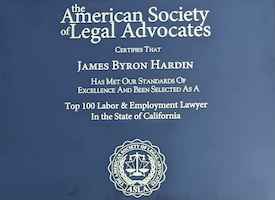What is a Class Action Lawsuit?
A class action lawsuit permits one or more plaintiffs (victims) to file and prosecute a lawsuit on behalf of a larger group, or “class”, and can be a powerful tool for recovering damages for injuries suffered. Class actions can be brought in state or federal court. The general belief is that state court is more favorable for plaintiffs than federal court.
Where do I file a class action lawsuit?
Typically, federal courts are thought to be more favorable for defendants, and state courts more favorable for plaintiffs. Many class actions are filed initially in state court. A defendant will frequently try to remove the case to federal court, a process that was made easier with the Class Action Fairness Act of 2005, which gives federal courts original jurisdiction for all class actions with damages exceeding $5,000,000 (exclusive of interest and costs). California has a civil procedure systems that deviates significantly from the federal rules, the details of which you can discuss with your California class action lawyer.
What is the procedure for filing a class action in federal court?
As we stated above, a class action lawsuit is filed on behalf of a group of people (the ‘proposed class’), some of whom may be unknown at the time of filing. Therefore, the suit will be filed with only one or a few named plaintiffs. After filing the initial paperwork, the plaintiff will file a motion to have the class ‘certified’. In order for the class to be certified, or approved by the court, the proposed class must consist of a group of individuals or business entities that have suffered a common injury or injuries. In some cases, class certification may require discovery in order to determine its size and if the proposed class meets the standard for class certification.
Once the motion to certify the class is filed, the defendant[s] may make their objections about whether a class action is appropriate. Objections include: whether the issues are appropriately handled as a class action, whether the named plaintiffs are sufficiently representative of the class, and the plaintiffs relationship with the law firm or firms handling the case. The court will also examine the ability of the firm to prosecute the claim for the plaintiffs, and their resources for dealing with class actions. This is one more reason why choosing a law firm experienced in class actions lawsuits and with a successful track record is necessary.
For more information on how to file a class action lawsuit in California, contact the experienced trial attorneys at Hardin & Associates today.





















